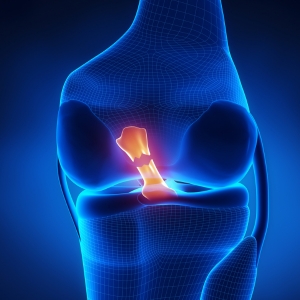What stool can tell you about your health
If you pay enough attention to your stools, you may read some important hidden messages about your health. Rectal bleeding can be one of these messages. Rectal bleeding refers to when blood passes from the rectum and anus. You may first realise there is rectal bleeding as blood shows up on the tissue paper, blood is on or mixed into the stool, or blood is down in the flushing water. It can be a symptom of many conditions, varying from benign problems like haemorrhoids to a serious diagnosis such as colorectal cancer.
The colour of blood passed in the stool may indicate the source of gastrointestinal bleeding1,2:
- Bright red blood can suggest bleeding from the lower colon, like the anus and rectum
- Dark red / maroon blood can suggest bleeding higher in the colon or small bowel
- Black coloured stool can suggest bleeding from the stomach

Rectal bleeding can be from various causes
Rectal bleeding is common in the general population. However, only one-third of those with rectal bleeding consult a physician.3 While mild conditions like haemorrhoids or anal fissure can cause rectal bleeding, other more serious pathology including inflammation or infection of the colon, diverticular disease and colorectal cancer may also contribute.2
The number of newly diagnosed cases of colorectal cancer in Hong Kong has increased by 27% from 2010 to 2019, accounting for 15.8% of all new cancer cases in 2019.4 Colorectal cancer is the second most frequently diagnosed cancer, and the second most common cause of cancer related deaths in Hong Kong.5 Of particular concern is the observed trend in Europe, North America and Asia that colorectal cancer is being increasingly diagnosed in the younger than 50 years old age group. In the United States, 20% of colorectal cancer cases now occur in those younger than 55 years old.6 These young-onset colorectal cancer cases are also more likely to present with more advanced disease and have worse prognosis. Rectal bleeding, along with diarrhoea, abdominal pain and iron-deficiency anaemia, have been recently identified as red-flag symptoms and signs of young-onset colorectal cancer.7 The important message is: unexplained gastrointestinal symptoms should be assessed and investigated by healthcare professionals.

What does a colonoscopy involve?
To investigate rectal bleeding, you may be advised by your doctor to undergo a colonoscopy, which is a test to visually inspect the inner lining of the large intestine. Before a colonoscopy, the colon has to be cleared of stools to allow accurate visualization. 8,9 Patients will usually be asked to adjust their diet for a few days ahead of the procedure. Laxatives will also be prescribed before the colonoscopy.10 A colonoscopy is usually performed under intravenous sedation to ensure patient comfort. Once the patient is sedated, the colonoscope, which is a flexible tube with a light and a camera at the end, is inserted through the anus into the colon. The tube is gently advanced to the beginning of the colon at the cecum under visualisation via a monitor. The colonoscope is then withdrawn and the lining of the colon is examined for abnormalities.11 Biopsies can be taken, and growths such as polyps can be removed during the procedure. Overall, the procedure takes between 30 minutes to one hour.8

Do asymptomatic patients need to be checked for colorectal cancer?
Colorectal cancer develops from precancerous polyps, which are abnormal growths of the mucosal epithelial cells lining the surface of the colon. Precancerous polyps are usually asymptomatic. Early-stage colorectal cancer can also be asymptomatic. Screening in asymptomatic patients thus allows detection and removal of precancerous polyps.12 Colorectal cancers detected through screening are in general less advanced than symptom-detected colorectal cancer. By cancer location, a screening colonoscopy is associated with a 65% reduction in risk of death for right-sided colon cancers, and a 75% reduction for left-sided colon or rectal cancers.13
Colorectal cancer incidence is closely associated with age, with the majority of cases occurring in individuals aged over 50 years.14 Therefore, most international guidelines recommend starting colorectal cancer screening at 50 years old.15 In 2019, the American Cancer Society lowered the starting age to 45 years old due to increasing young-onset colorectal cancer. Individuals who have first-degree relatives with colorectal cancer or advanced precancerous polyps, may also require earlier screening to stay alert.16
Articles on this website are informative only and not intended to be a substitute for professional medical advice, diagnosis or treatment. They should not be relied upon for specific medical advice.
Reference:
1. Zuckerman GR, Trellis DR, Sherman TM, et al. Dig Dis Sci. 1995;40:1614-21.
2. Cleveland Clinic. Rectal Bleeding. Available from: https://my.clevelandclinic.org/health/symptoms/14612-rectal-bleeding#:~:text=Rectal%20bleeding%20is%20a%20symptom,bowl%20or%20in%20your%20stool. [Accessed 06 Feb 2023].
3. Eslick GD, Kalantar JS, Talley NJ. et al. Colorectal Dis. 2009;11:921-6.
4. Centre for Health Protection. Awareness and Prevention of Colorectal Cancer. Available from: https://www.chp.gov.hk/files/pdf/ncd_watch_january_2022.pdf [Accessed 06 Feb 2023].
5. Cancer Online Resource Hub, HKSAR Government. Overview of Cancer Statistics in Hong Kong. Available from: https://www.cancer.gov.hk/en/hong_kong_cancer/overview_of_cancer_statistics_in_hong_kong.html [Accessed 06 Jun 2023].
6. Siegel RL, Wagle NS, Cercek A, et al. CA Cancer J Clin. 2023;73(3):233-254.
7. Fritz CDL, Otegbeye EE, Zong X, et al. J Natl Cancer Inst. 2023;djad068.
8. Issa IA, Noureddine M. World J Gastroenterol. 2017;23:5086-5096.
9. American Cancer Society. Colorectal Cancer Facts & Figures 2020-2022. Available from: https://www.cancer.org/content/dam/cancer-org/research/cancer-facts-and-statistics/colorectal-cancer-facts-and-figures/colorectal-cancer-facts-and-figures-2020-2022.pdf [Accessed 06 Feb 2023].
10. Mayo Clinic. Colonoscopy. Available from: https://www.mayoclinic.org/tests-procedures/colonoscopy/about/pac-20393569 [Accessed 06 Feb 2023].
11. American Cancer Society. Colorectal Cancer Screening Tests. Available from: https://www.cancer.org/cancer/colon-rectal-cancer/detection-diagnosis-staging/screening-tests-used.html [Accessed 06 Feb 2023].
12. Schult AL, Botteri E, Hoff G, et al. BMJ Open. 2021;11:e048183.
13. Doubeni CA, Corley DA, Quinn VP, et al. Gut. 2018;67:291-298.
14. Recommendations on Prevention and Screening for Colorectal Cancer For Health Professionals. Available from: https://www.chp.gov.hk/files/pdf/cewg_crc_professional_hp.pdf [Accessed 06 Feb 2023].
15. Centers for Disease Control and Prevention. What Should I Know About Screening? Available from: https://www.cdc.gov/cancer/colorectal/basic_info/screening/index.htm [Accessed 06 Feb 2023].
16. Smith RA, Andrews KS, Brooks D, et al. CA Cancer J Clin. 2019;69(3):184-210.

Information provided by:
Dr. WONG Chi To, John, Specialist in Gastroenterology & Hepatology





